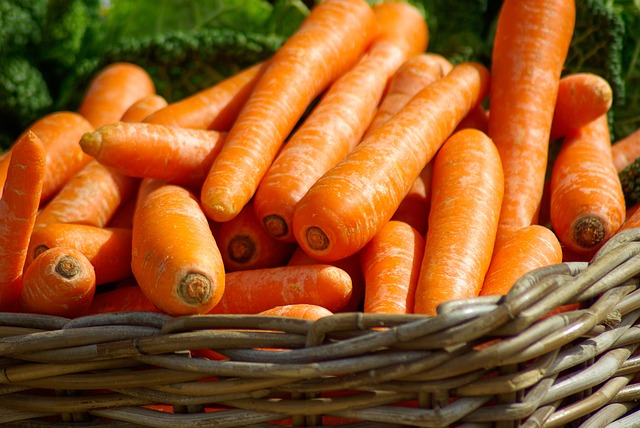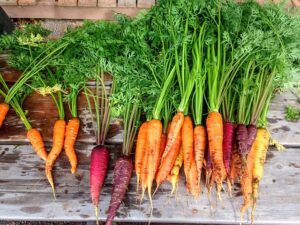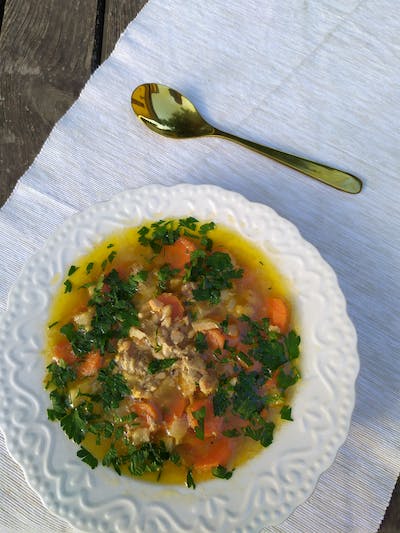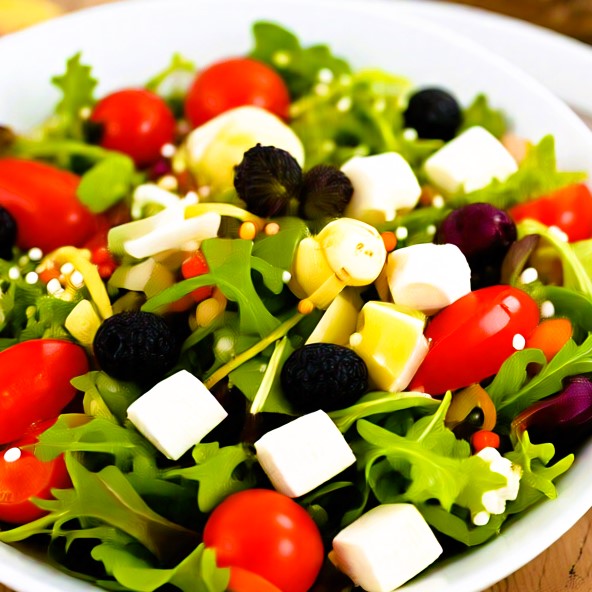Carrot Recipes 2025: Affordable Fresh Carrots in Season How to Enjoy the Health Benefits
Learn about the health benefits of fresh carrots, how to choose and store them, and some delicious recipes to make with this versatile root vegetable.

Carrots are one of the most popular and widely consumed vegetables in the world. They are not only crunchy, sweet, and colourful, but also rich in nutrients and antioxidants that can benefit your health in many ways. In this article, we are going to learn about the health benefits of fresh carrots, how to choose and store them, and some delicious carrots recipes to make with this versatile root vegetable.
Health Benefits of Fresh Carrots
Carrots are a good source of several vitamins and minerals, especially vitamin A, biotin, potassium, and vitamin K1. Vitamin A is essential for healthy vision, skin, and immune system. Biotin is involved in energy metabolism and hair growth. Potassium helps regulate blood pressure and fluid balance.  Vitamin K1 supports blood clotting and bone health1.
Vitamin K1 supports blood clotting and bone health1.
Carrots also contain many plant compounds that have antioxidant and anti-inflammatory effects. These include beta-carotene, alpha-carotene, lutein, zeaxanthin, and polyacetylenes. Antioxidants protect your cells from oxidative stress and chronic diseases, such as cancer, diabetes, and cardiovascular disease2.
Some of the health benefits of fresh carrots are:
- Improved eye health: Carrots are rich in beta-carotene, which your body converts into vitamin A. Vitamin A is vital for maintaining normal vision and preventing night blindness. Carrots also contain lutein and zeaxanthin, which are antioxidants that protect the retina and lens from age-related macular degeneration and cataracts3.
- Lowered cholesterol levels: Carrots are high in soluble fibre, which can lower blood cholesterol levels by binding to bile acids and preventing their reabsorption. Soluble fibre also helps regulate blood sugar levels and insulin sensitivity4.
- Enhanced skin health: Carrots provide vitamin A and antioxidants that can help prevent skin damage from sun exposure, pollution, and ageing. Vitamin A is also involved in wound healing and collagen synthesis. Carrots also contain vitamin C, which is necessary for collagen production
 and skin elasticity5.
and skin elasticity5. - Boosted immune system: Carrots support your immune system by providing vitamin A, vitamin C, and antioxidants that can fight off infections and inflammation. Vitamin A is especially important for the mucous membranes that line your respiratory and digestive tracts, which are the first line of defence against pathogens6.
- Reduced risk of cancer: Carrots contain various phytochemicals that have anti-cancer properties, such as beta-carotene, alpha-carotene, lycopene, and polyacetylenes. These compounds can modulate the expression of genes, inhibit the growth of tumour cells, and induce apoptosis (cell death) in cancer cells7.
How to Choose and Store Fresh Carrots
When buying fresh carrots, look for firm, smooth, and bright-coloured ones. Avoid carrots that are limp, cracked, or have green tops, as these indicate that they are old or overexposed to sunlight. You can also buy organic carrots if you want to avoid pesticide residues8.
To store fresh carrots, cut off the green tops if they are attached, as they can draw moisture and nutrients from the roots. Wash and dry the carrots thoroughly, then wrap them in a paper towel and place them in a plastic bag or an airtight container. Store them in the refrigerator for up to two weeks. You can also freeze peeled and chopped carrots for up to a year.
Delicious Recipes with Fresh Carrots
Fresh carrots are versatile and can be enjoyed in many ways. You can eat them raw as a snack or in salads, or cook them in soups, stews, stir-fries, roasts, and baked goods. Here are some of our favourite recipes with fresh carrots:
Some of the most cherished recipes made with carrots in cold weather are:
-

Carrot and ginger soup Carrot and ginger soup: This is a traditional and comforting soup that warms you up with its spicy and sweet flavour. It is made with carrots, onion, garlic, ginger, vegetable broth, and coconut milk. It is vegan, gluten-free, and dairy-free, and can be spiced up with some curry powder or cumin1.
- Carrot cake: This is a moist and delicious cake that is perfect for any occasion. It is made with grated carrots, walnuts, raisins, and spices, and topped with a creamy cream cheese frosting. You can also add pineapple, coconut, or chocolate chips for extra flavour and texture.
-

Carrot and lentil stew Carrot and lentil stew: This is a hearty and healthy stew that is easy to make in one pot. It is made with carrots, red lentils, onion, garlic, tomato paste, vegetable broth, and spices. It is vegan, gluten-free, and high in protein and fibre. You can serve it with bread, rice, or couscous.

Roasted carrots with honey and thyme - Roasted carrots with honey and thyme this is a simple and elegant side dish that brings out the natural sweetness and flavour of the carrots. It is made with baby carrots, olive oil, honey, thyme, salt, and pepper. You can also add some lemon juice, garlic, or rosemary for more zest.
 Carrot and apple salad: This is a refreshing and crunchy salad that is great for a light lunch or a snack. It is made with shredded carrots, chopped apples, raisins, walnuts, and yoghurt. You can also add some lemon juice, honey, or cinnamon for more flavour.
Carrot and apple salad: This is a refreshing and crunchy salad that is great for a light lunch or a snack. It is made with shredded carrots, chopped apples, raisins, walnuts, and yoghurt. You can also add some lemon juice, honey, or cinnamon for more flavour.
These are some of the recipes that you can try with carrots in cold weather, but there are many more that you can find on the websites that I found for you using my web search tool. Here are some of them:
- Glazed carrots: This classic and easy recipe involves simmering carrot coins in a mixture of brown sugar and butter, then sprinkling them with parsley for a touch of freshness11.
- Carrot biryani: This quick and easy vegetarian dish is ready in just 25 minutes. It combines basmati rice, carrots, peas, spices, and coconut milk for a flavorful and satisfying meal.
 Carrot cake: This moist and delicious cake is made with grated carrots, walnuts, raisins, and spices, and topped with a creamy cream cheese frosting. It’s perfect for any occasion.
Carrot cake: This moist and delicious cake is made with grated carrots, walnuts, raisins, and spices, and topped with a creamy cream cheese frosting. It’s perfect for any occasion.- Carrot soup: This creamy and comforting soup is made with carrots, onion, garlic, ginger, vegetable broth, and coconut milk. It’s vegan, gluten-free, and dairy-free, and can be spiced up with some curry powder or cumin.

Growing Your Carrots
Growing your carrots is a rewarding and fun activity that can provide you with fresh and tasty vegetables. Carrots are easy to grow from seeds in your garden, a planter box, or even a large pot. Here are some steps to follow to grow your carrots:
- Choose a variety of carrots that suit your soil and climate. There are many types of carrots, such as Chantenay, Nantes, Imperator, and Amsterdam, that have different shapes, sizes, and colours. Some carrots need deep, loose, and sandy soil, while others can grow in shallow, heavy, or clay soil. You can also choose carrots that are early, mid, or late season, depending on when you want to harvest them12.
- Prepare the soil and the site. Carrots need a sunny spot with well-draining soil that is free of rocks, clods, and weeds. You can loosen the soil with a fork or a tiller, and add some compost or organic matter to improve the fertility and drainage. You can also raise the soil in beds or mounds to create more depth and aeration123.
- Sow the seeds directly in the soil. Carrots do not like to be transplanted or disturbed, so it is best to sow the seeds where you want them to grow. You can sow the seeds as soon as the soil is workable in the spring, or in the fall in warmer climates. Sow the seeds about 1/4 inch deep and 1/2 inch apart in rows that are 18 inches apart. You can also mix the seeds with sand or radish seeds to make them easier to spread and germinate123.
- Water and thin the seedlings. Carrots need regular and consistent watering to keep the soil moist but not soggy. Water the seeds gently after sowing, and water the seedlings every few days or as needed. Do not let the soil dry out or become too wet, as this can affect the germination and growth of the carrots. When the seedlings are about 2 inches tall, thin them out to leave about 3 inches of space between each plant. You can snip off the excess seedlings with scissors or pinch them off with your fingers, rather than pulling them out, to avoid damaging the roots of the remaining plants123.
- Fertilize and weed the carrots. Carrots do not need much fertilizer, as too much nitrogen can cause them to grow more foliage than roots. You can apply a balanced fertilizer at planting time, and then a low-nitrogen fertilizer every four to six weeks. You can also mulch the soil with straw, grass clippings, or compost to retain moisture, suppress weeds, and prevent the carrot tops from turning green and bitter. Weed the carrots carefully by hand or with a hoe, as weeds can compete with the carrots for water, nutrients, and space123.
- Harvest and store the carrots. Carrots are ready to harvest when they reach the desired size and colour, usually within 50 to 75 days after planting. You can harvest them earlier for baby carrots, or later for larger and sweeter carrots. To harvest the carrots, loosen the soil around the roots with a fork or a spade, and gently pull them out by the tops. Cut off the tops wash the roots, and store them in a cool, dark, and humid place, such as a refrigerator, a cellar, or a root cellar. You can also freeze, can, or pickle the carrots for longer storage123.
These are some of the basic steps to grow your carrots, but you can also find more tips and advice from the websites I found for you using my web search tool. Here are some of them:
- How to Grow and Care for Carrots: This website provides a detailed guide on how to grow and care for carrots, including planting, care, types, harvesting, and growing in pots.
- How to Grow Carrots (with Pictures): This website provides a step-by-step tutorial on how to grow carrots, with pictures and videos to illustrate each step.
- How to Plant and Grow Carrots: This website provides information and advice on how to plant and grow carrots, including choosing a variety, prepping the soil, sowing the seeds, watering and thinning, fertilizing and weeding, and harvesting and storing.
Fresh carrots are in season and a great addition to your diet. They are nutritious, delicious, and versatile, and can help you improve your health and well-being. Try some of our suggested recipes or create your own with this amazing root vegetable. Enjoy!
If you enjoyed this article, please like and share it with your friends. Don’t forget to Share your personal experience/observations thoughts and valuable suggestions for the education /benefit of others. Do subscribe to remain onboard and get more great content!
Almond Delicious Recipes in 2024 To Enjoy

